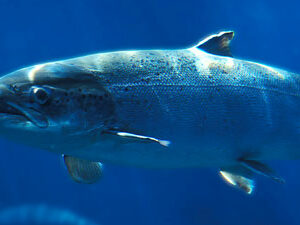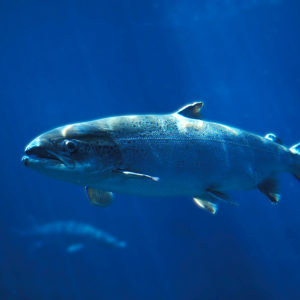<strong>CEPA (Bill S-5): Enviro Committee reverses Senate decisions on genetic pollution</strong>
Unceded Algonquin Territory – Ottawa, ON – February 16, 2023
Today Liberal and Conservative members of the House of Commons Environment Committee voted to remove Senate amendments requiring meaningful public participation in assessments of genetically engineered (GE) animals and an evaluation of whether there is a ‘demonstrable need’ for such an organism.
“We are dismayed that the government and official opposition have blocked strong, clear guidelines for meaningful public participation, which is a foundational part of any review and approval process in a democracy,” says Mark Butler, Senior Advisor with Nature Canada. “We are concerned at the overly pro-industry stance being taken by government MPs, which is not coherent with strong government commitments to protect Nature and the public interest.”
Both government officials and industry insist that current Canadian Environmental Protection Act (CEPA) risk assessments are rigorous and science-based, and yet refuse to open these assessments to public participation and scrutiny.
In 2017 the same committee released a report with five out of the 87 recommendations relating to the governance of genetically engineered animals including improving transparency and public participation. Recommendation 26 reads as follows:
“The Committee recommends that CEPA be amended to establish a more open, inclusive and transparent risk assessment process that better enables public participation in the evaluation of new living modified organisms.”
Minister of the Environment and Climate Change Stephen Guilbeault introduced Bill S-5, a bill to amend CEPA, in February 2022 and in an unusual move, sent it first to the Senate rather than the House of Commons. That allowed Senators to make some improvements not originally included in Bill S-5.
The Senate made several amendments consistent with Recommendation 26, but the two largest parties in the House have teamed up to reverse most of the progress that was made in the Senate.
Nature Canada’s focus in Bill S-5 has been on protecting nature from genetic pollution and supporting Indigenous peoples in their call for respect of Indigenous rights in any assessment process for GE organisms. Both the Assembly of First Nations and Congress of Aboriginal Peoples appeared at the Senate committee, and the AFN made a submission to the House of Commons committee on these issues.
“Bill S-5 was a missed, once in a generation opportunity to take action on genetic pollution. Despite a provision in CEPA requiring a review every five years, Parliament has not conducted significant review of this Act followed by comprehensive amendments in over 22 years. There is no telling when the next government bill proposing amendments will be introduced,” said Gauri Sreenivasan, Director of Policy and Campaigns with Nature Canada.
AquaBounty, an American company with a location in PEI, received approval under CEPA to grow a transgenic salmon, containing genetic material from a chinook salmon and an ocean pout. The company began selling the unlabelled transgenic fish in Canada in 2021. Nature Canada is concerned the salmon could escape and interbreed with wild salmon.
Once the Environment Committee finishes reviewing Bill S-5, the bill will return to the House for third reading.
Mark Butler, Senior Advisor, 902-266-5401(Entrevues disponible en francais)
Gauri Sreenivasan, Director of Policy and Campaigns, 613-852-0983(Entrevues disponible en francais)


